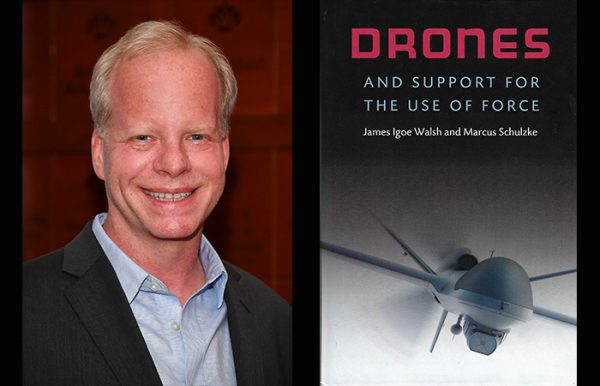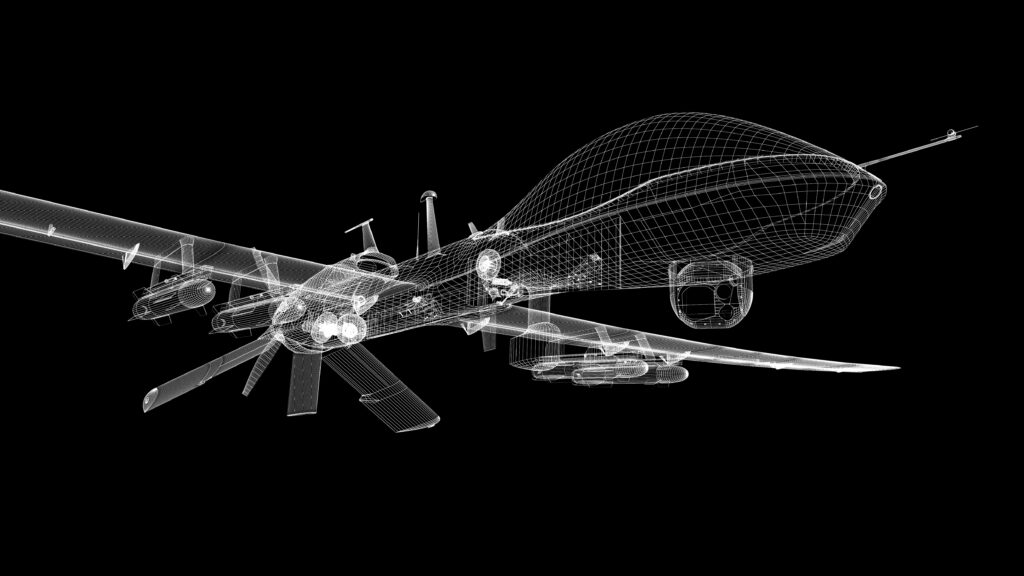Political Scientist’s Personally Speaking Talk To Delve Into Drones

The use of combat drones stands out as one of the most critical developments in 21st century military actions. The use of drones has:
- Influenced foreign policy decisions,
- Impacted democratic control of military action, and
- Sparked debate about civilian and military casualties in conflicts.
Learn more about this important topic from UNC Charlotte political scientist James Igoe Walsh, during his Personally Speaking virtual talk on Wednesday, Sept. 30 at 7 p.m. A noted expert, Walsh will draw from his book “Drones and Support for the Use of Force” and share details from new research on the topic.
Research suggests that people are more willing to support military action when the costs of conflict are reduced. The use of drones increases accuracy and reduces the risks for civilians and military personnel, which would suggest that drone strikes would be more popular than operations involving ground troops.
Yet, critics of drones argue that drone use can lead to a greater willingness by political leaders to authorize wars, while weakening constraints on the use of force.
Walsh will explore the nuanced arguments about precision weapons, particularly as they relate to the modern military – and political – structures.
The conversation will appeal to a broad audience, including those interested in:
- Military history and current practices,
- Political dynamics,
- Ethical questions and more.
While the conversation will be virtual, it will also be highly interactive with an opportunity for questions. Slots are limited for the live talk. Attendees should register no later than 5 p.m. Saturday, Sept. 26. Registrants will receive a link to join the talk. A recording of the talk will be posted on the College’s YouTube channel later: Subscribe to our channel here.
Walsh is a professor in the Department of Political Science and Public Administration. In recognition of his outstanding scholarship, creativity, and research, he received the 2020 First Citizens Bank Scholars Medal, the university’s highest research award. In addition to his book on drones with co-author Marcus Schulzke, he has written two other books and over 40 papers, book chapters and other publications.
He leads several research efforts at UNC Charlotte, including the “Resources and Conflict” project funded by the U.S. Department of Defense and its Minerva Research Initiative. With colleagues Beth Elise Whitaker and Justin Conrad, that project developed the first-ever rebel contraband dataset. He also directs the Intelligence Community Center of Academic Excellence at UNC Charlotte, with a goal of exposing students who are culturally and ethnically diverse, from a variety of disciplines, to a range of possible opportunities in the intelligence community.

